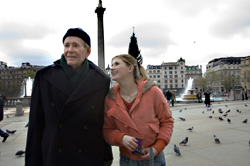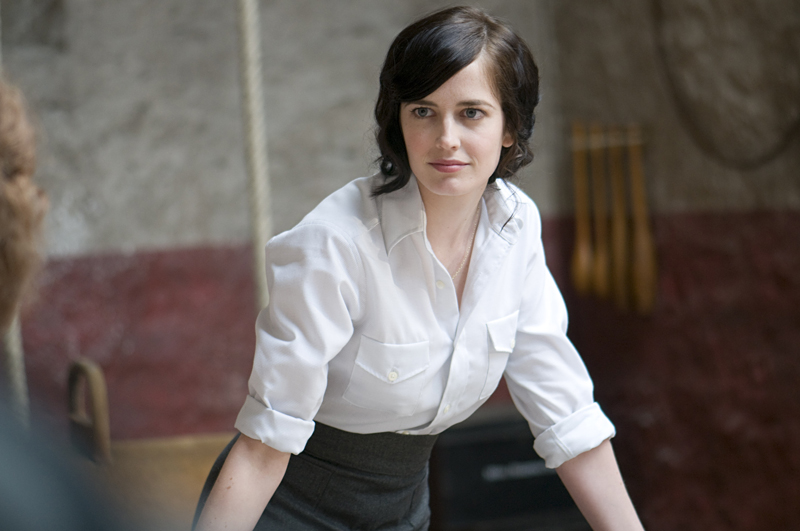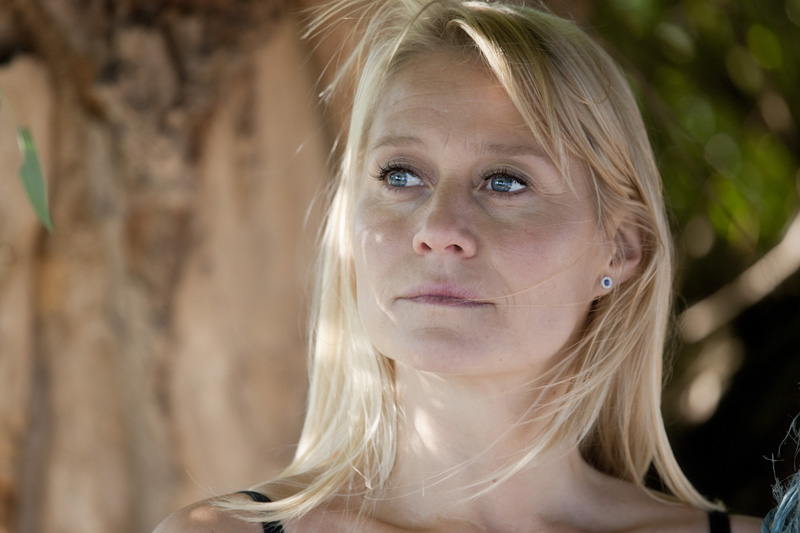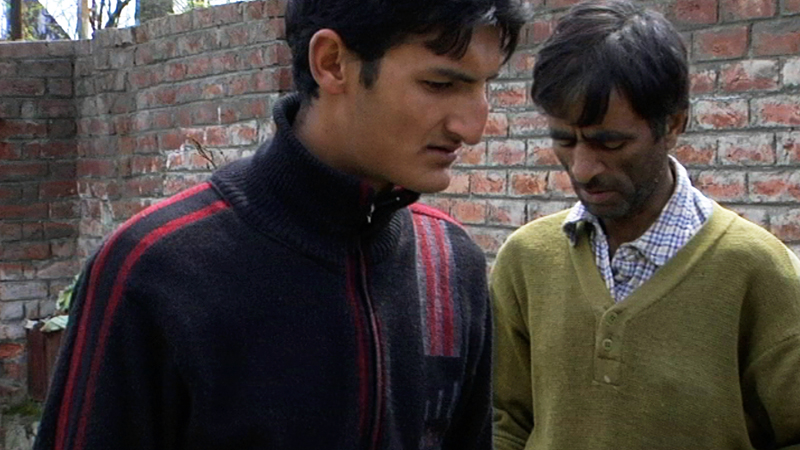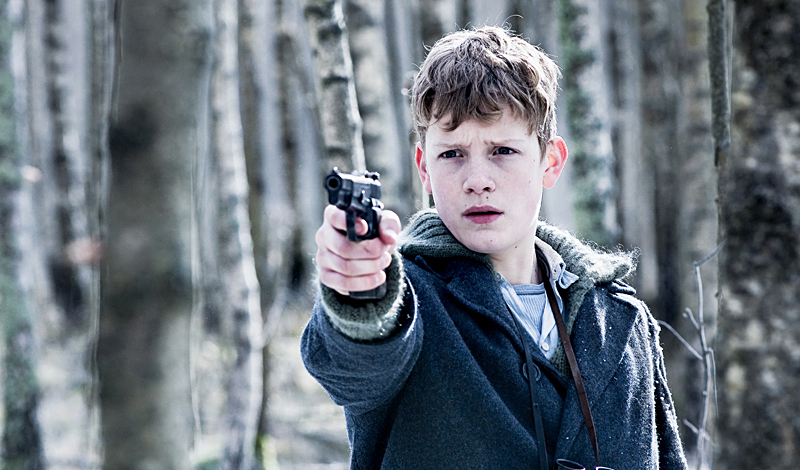More often than not, what Hollywood is pleased to call a May-December love story turns out to be the vanity project of some geezer actor or director (Eastwood, Nicholson, Allen, et al.) with more clout than wit, who fondly imagines that moviegoers will want to watch firm young female flesh rushing into his stringy old arms instead of younger biceps. Venus is another kind of creature altogether—elegiac, filthy-minded, unsparing, and as deeply moving as you’d expect from any de facto story of Peter O’Toole’s life.
A second collaboration between the British duo of screenwriter Hanif Kureishi and director Roger Michell, Venus is a willfully profane study in what less adventurous minds would call mature sexuality. The movie is both a companion piece to their first joint project, The Mother (2003)—an intelligent but cold and cruel study of a bitter grandmother who comes to rue the day she sleeps with her daughter’s lover—and its warmly appreciative opposite.
Predictably, Venus lavishes more tender compassion on Maurice (O’Toole), a decrepit actor of minor distinction now reduced to playing terminal patients on television soaps and hanging out mornings with his equally codgerish friends, the pedantic and probably gay Ian (played by the beloved English character actor Leslie Phillips) and the accommodating Donald (The History Boys‘ Richard Griffiths). The idea for the film, originally titled The Old Gits, grew out of Kureishi’s regular breakfasts with other graying arty types, among them Stephen Frears (not so aged by my math, and neither is Kureishi, but evidently you’re as old as you feel), and some of its funniest and most lyrical scenes dwell on the quarrelsome affection that binds old friends and rivals in a profession not known for mutual generosity.
Nabokov must be hovering in the wings, too, for here comes extreme youth in the shapely form of Ian’s great-niece Jessie, who’s played by Jodie Whittaker, a newcomer so lush and golden I’d have sworn she was a baby Redgrave. Uncouth, unfinished, and as provincial as she is heart-stoppingly lovely, Jessie moves in with Ian to further her modeling ambitions, whereupon she proceeds to offend his fastidious housekeeping as handily as she gooses the ever-ready, if barely functional, libido of Maurice. The old roué—no stretch for O’Toole, who’s having the time of his life being himself—maintains “a theoretical interest” by gazing up her miniskirt and copping feels with and without permission, shelling out for tattoos and limo-driven tours of London, and allowing the callow wench to use his flat to fornicate with her unappetizing young swain.
The movie has a lovingly undiscriminating physicality as it roams Maurice’s North London haunts, from his stuffy flat by a fish-and-chip shop to the cluttered home of the ex-wife (a very good Vanessa Redgrave) he abandoned with three young children to the opulent interior of the Royal Court Theater, where Jessie hungrily takes in her first real play. Michell’s relentless focus on every detail of Maurice’s bodily decay feels more organic than repellent, for the old man knows he’s dying and has no time left for pride or dignity.
For her part, Jessie bestows and withholds with the brutal arrogance of youth and the dawning realization that she’s being offered not just the attentions of an old lech, but an education both aesthetic and sentimental. Venus may be a leering male fantasy, but it is also, improbably but persuasively, a love story as tender as it is transgressive. It’s a wry celebration of the tyranny of beauty, and the tragicomic way in which desire outruns the betrayals of dying flesh.
Taking its bizarre lovers on an ill- advised but essential train trip to the south coast, Venus thumbs its insolent nose at a thousand transformative movie endings, and looks squarely at the truth that most of us die pretty much as we’ve lived. If we’re lucky, that life will have included risk and courage and the willingness to look like fools in the service of some romantic ideal, however cockeyed. At the end, Donald shows a bereft Ian a newspaper photo of the unspeakably beautiful O’Toole in his prime, probably around the time he shot Lawrence of Arabia. Word is that the actor is very ill, and though I imagine being married to him was no picnic, I can only wish him a raft of ultrashort skirts to sneak a look up as he takes his last gasp.
